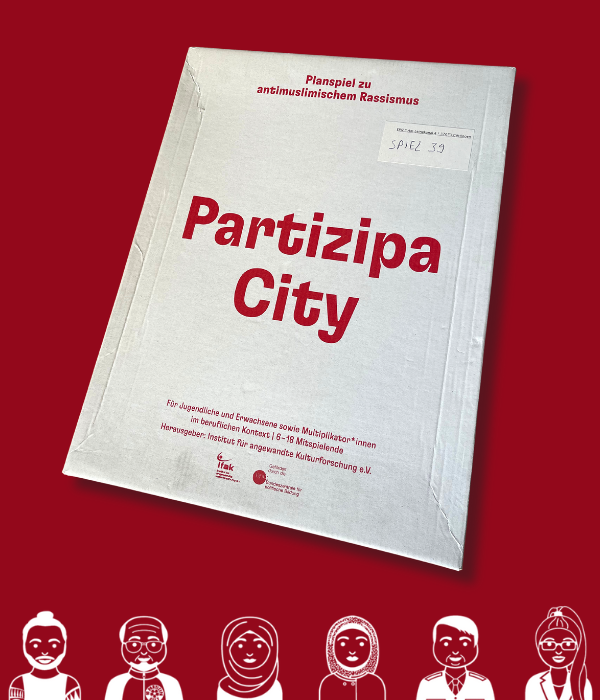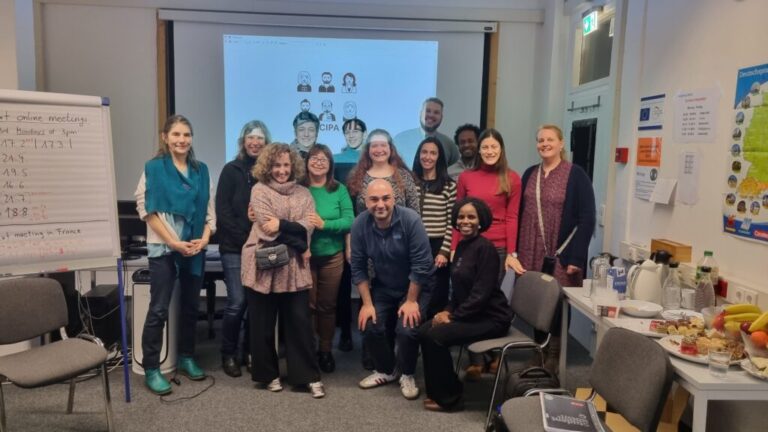Participa City – A European Game to Foster Inclusion and Participation of Ethnic and Cultural Minorities
Participa City is a European Erasmus+ project (2024–2026) that aims to prevent racism and discrimination against ethnic and cultural minorities by promoting inclusive practices and strengthening their participation in European society. Coordinated by the Institut für angewandte Kulturforschung e.V. (ifak) and supported by six European partners—including blinc e.G.—the project brings an innovative and playful approach to anti-discrimination training through a gamified educational tool.
Project Duration: 01.10.2024 – 30.09.2026
- Total Duration: 34 months
- Funded by: Erasmus+ KA220 – Cooperation Partnerships in Adult Education
- Budget: 250.000 €

At the heart of the project lies the Participa City simulation game, which immerses learners in everyday social situations where discrimination can occur—such as at train stations, schools, job centers, or sports fields. Players adopt different roles and reflect on their actions and perceptions in safe learning environments. The game, which was first developed and tested in Germany, is now being adapted, expanded, and digitalised for use across multiple European countries.

Project Activities
Participa City responds to the growing need for accessible and effective tools that address xenophobia, islamophobia, racism, and other forms of discrimination in adult education and public institutions. The project aims to:
Raise awareness of discriminatory structures and unconscious bias, especially among key decision-makers and educators.
Adapt and expand the Participa City game into a modular, digital, and multilingual version.
Provide a European trainer manual and digital toolbox for educators.
Train adult education professionals and “gatekeepers” in institutions (such as public administration, social work, education) in the use of anti-discrimination methods.
Promote civic courage, empathy, and inclusive participation throughout Europe.
The project follows a competence-oriented methodology using the LEVEL5 validation system to assess personal and social competences developed through the game. It also contributes to European policy goals on inclusion, diversity, and civic engagement.
Key Activities and Outputs
Transnational context analysis and collection of “critical incidents” of discrimination
Development of a European, modular, and partially digital version of the simulation game
Trainer manual and toolbox for adult education providers
Design and implementation of a two-step European train-the-trainer course
Local testing and dissemination events across partner countries

KA220-ADU – Cooperation partnerships in adult education
KA220-ADU-BB269395
Funded by the European Union. Views and opinions expressed are however those of the author(s) only and do not necessarily reflect those of the European Union or the European Education and Culture Executive Agency (EACEA). Neither the European Union nor EACEA can be held responsible for them.

